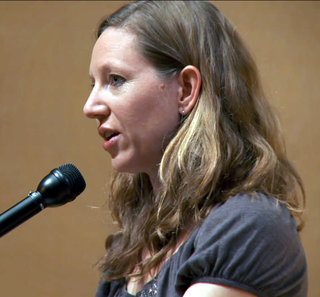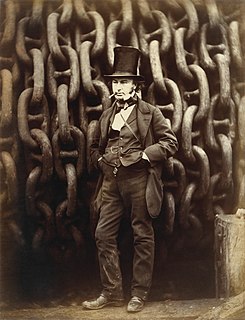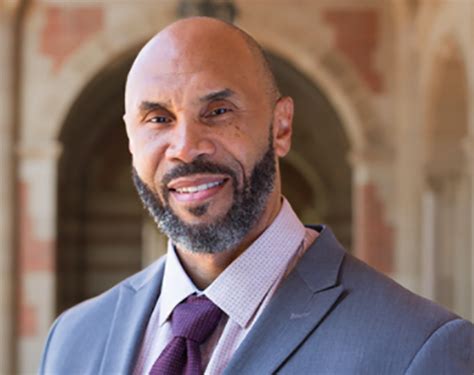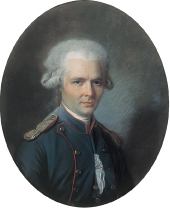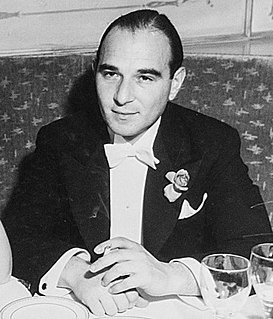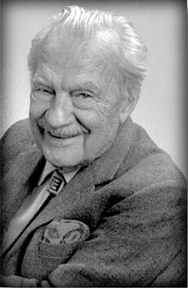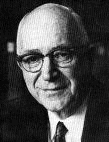Top 730 Prejudices Quotes & Sayings - Page 12
Explore popular Prejudices quotes.
Last updated on November 21, 2024.
Man is about to be an automaton; he is identifiable only in the computer. As a person of worth and creativity, as a being with an infinite potential, he retreats and battles the forces that make him inhuman. The dissent we witness is a reaffirmation of faith in man; it is protest against living under rules and prejudices and attitudes that produce the extremes of wealth and poverty and that make us dedicated to the destruction of people through arms, bombs, and gases, and that prepare us to think alike and be submissive objects for the regime of the computer.
The tribute that is due to the talents, the rectitude, and the patriotism which adorn the characters selected to devise and adopt them. In these honorable qualifications, I behold the surest pledges, that as on one side, no local prejudices, or attachments; no seperate views, nor party animosities, will misdirect the comprehensive and equal eye which ought to watch over this great assemblage of communities and interests: so, on another, that the foundations of our National policy will be laid in the pure and immutable principles of private morality...
The Knight in the triumph of his heart made several 6 reflections on thegreatness of the British Nation; as, that one Englishman could beat three Frenchmen; that we could never be in danger of Popery so long as we took care of our fleet; that theThames was thenoblest river in Europe; that London Bridge was a greater piece of work than any of the Seven Wonders of the World; with many other honest prejudices which naturally cleave to the heart of a true Englishman.
This new England we have invented for ourselves is not interested at all in education. It is only interested in training, both material and spiritual. Education means freedom, it means ideas, it means truth. Training is what you do to a pear tree when you pleach it and prune it to grow against a wall. Training is what you give an airline pilot or a computer operator or a barrister or a radio producer. Education is what you give children to enable them to be free from the prejudices and moral bankruptcies of their elders.
In the most basic terms it was about how when we experience art without critical awareness we consent to the ideas being promoted, either intentionally or unintentionally, by the filmmaker. For instance, if you watch a racist comedian and laugh at his jokes, you are consenting to the prejudices inherent within them. Similarly, if you watch a movie which perpetuates conventional ideas about race, gender, etc., you are consenting to them and not affecting change in any way.
For pragmatic reasons, for lessening of violence and for allowing people to live better lives, I think that the march forward for GLBTQ+ rights is a worthwhile one. But for me, hopefully the frontier is alliance-making across all the social issues, whereby people can get over whatever prejudices they're holding in order to keep their eyes on making livable lives for people in all states of vulnerability, no matter what their gender, sexuality, race, class, origin, whatever.
The slaving Poor are incapable of any Principles: Gentlemen may be converted to true Principles, by Time and Experience. The middling Rank of Men have Curiosity and Knowledge enough to form Principles, but not enough to form true ones, or correct any Prejudices that they may have imbib'd: And 'tis among the middling Rank, that Tory Principles do at present prevail most in England.
If the Commission is to enquire into the conditions "to be observed," it is to be presumed that they will give the result of their enquiries; or, in other words, that they will lay down, or at least suggest, "rules" and "conditions to be (hereafter) observed" in the construction of bridges, or, in other words, embarrass and shackle the progress of improvement to-morrow by recording and registering as law the prejudices or errors of to-day. [Objecting to any interference by the State with the freedom of civil engineers in the conduct of their professional work.]
So long as the mental and moral instruction of man is left solely in the hands of hired servants of the public--let them be teachers of religion, professors of colleges, authors of books, or editors of journals or periodical publications, dependent upon their literary incomes for their daily bread, so long shall we hear but half the truth; and well if we hear so much. Our teachers, political, scientific, moral, or religious; our writers, grave or gay, are compelled to administer to our prejudices and to perpetuate our ignorance.
Pure love removes all negative feelings. Destroying all selfishness, it expects nothing but gives anything. Pure love is a constant giving up- giving up of everything that belongs to you. What really belongs to you? Only the ego. Love consumes in its flames all preconceived ideas, prejudices and judgments, all those things which stem from the ego. Pure love is nothing but the emptying of the mind of all its fears and the tearing off of all masks. It exposes the Self as it is.
The conservatives have already accepted a large part of the collectivist creed-a creed that has governed policy for so long that many of its institutions have come to be accepted as a matter of course and have become a source of pride to "conservative" parties who created them. Here the believer in freedom cannot but conflict with the conservative and take an essentially radical position, directed against popular prejudices, entrenched positions, and firmly established privileges. Follies and abuses are no better for having long been established principles of folly.
The Conservatives hold rural places because they keep bombarding rural Canada with, "Liberals are a bunch of urban, metropolitan snobs who don't care about you and want to leave you dead by the roadside." We've simply got to go out and say, "they're lying to you about us. We actually care about you more than the other guys, and we're not going to pander to your prejudices - we're going to give hope to your kids."
A famous bon mot asserts that opinions are like arse-holes, in that everyone has one. There is great wisdom in this... but I would add that opinions differ significantly from arse-holes, in that yours should be constantly and thoroughly examined.We must think critically, and not just about the ideas of others. Be hard on your beliefs. Take them out onto the verandah and beat them with a cricket bat.... Be intellectually rigorous. Identify your biases, your prejudices, your privilege.
Over and above the various prejudices I acknowledge, the affinities I feel, the attractions I succumb to, the events which occur to me and to me alone- over and above a sum of movements I am conscious of making, of emotions I alone experience- I strive, in relation to other men, to discover the nature, if not the necessity, of my difference from them. Is it not precisely to the degree I become conscious of this difference that I shall recognize what I alone have been put on this earth to do, what unique message I alone may bear, so that I alone can answer for its fate?
You can’t learn to write in college. It’s a very bad place for writers because the teachers always think they know more than you do—and they don’t. They have prejudices. They may like Henry James, but what if you don’t want to write like Henry James? They may like John Irving, for instance, who’s the bore of all time. A lot of the people whose work they’ve taught in the schools for the last thirty years, I can’t understand why people read them and why they are taught.
The ground we have in common with unbelievers is not the Bible, but our common needs, hurts, and interests as human beings. You cannot start with a text expecting the unchurched to be fascinated by it. You must first capture their attention, and then move them to the truth of God's Word. By starting with a topic that interests the unchurched and then showing what the Bible says about it, you can grab their attention, disarm prejudices, and create an interest in the Bible that wasn't there before.
The Christian life is stamped by 'moral spontaneous originality,' consequently the disciple is open to the same charge that Jesus Christ was, viz., that of inconsistency. But Jesus Christ was always consistent to God, and the Christian must be consistent to the life of the Son of God in him, not consistent to hard and fast creeds. Men pour themselves into creeds, and God has to blast them out of their prejudices before they can become devoted to Jesus Christ.
The question has often been asked; Is Buddhism a religion or a philosophy? It does not matter what you call it. Buddhism remains what it is whatever label you may put on it. The label is immaterial. Even the label 'Buddhism' which we give to the teachings of the Buddha is of little importance. The name one gives is inessential.... In the same way Truth needs no label: it is neither Buddhist, Christian, Hindu nor Moslem. It is not the monopoly of anybody. Sectarian labels are a hindrance to the independent understanding of Truth, and they produce harmful prejudices in men's minds.
I think the important thing about sisters is that they share the same minute, familiar life-style, the same little sets of rules. Therefore they can keep house with each other late in life, because they share the same bunch of housewifely prejudices. The important thing about women today is, as they get older, they still keep house. It's one reason they don't die, but men die when they retire. Women just polish the teacups.
People learn a lot about what they think they know about other people from what they see in the media. If they see certain types of images reproduced over and over again for other groups that limit them to narrow types of roles and portrayals, they start to take those prejudices into their interactions with those people in real society, and that creates all kinds of discriminatory problems.
... superstitions, which, being unable to defend themselves on fair ground, raise these intangling brambles to cover and protect their weakness. Chased from the open country, these robbers fly into the forest, and lie in wait to break in upon every unguarded avenue of the mind, and overwhelm it with religious fears and prejudices. ... The idea of God, as meaning an infinitely intelligent, wise and good Being, arises from reflecting on the operations of our own mind, and augmenting, without limit, those qualities of goodness and wisdom.
I shall possess this woman; I shall steal her from the husband who profanes her: I will even dare ravish her from the God whom she adores. What delight, to be in turns the object and the victor of her remorse! Far be it from me to destroy the prejudices which sway her mind! They will add to my happiness and my triumph. Let her believe in virtue, and sacrifice it to me; let the idea of falling terrify her, without preventing her fall; and may she, shaken by a thousand terrors, forget them, vanquish them only in my arms.
The material which a scientist actually has at his disposal, his laws, his experimental results, his mathematical techniques, his epistemological prejudices, his attitude towards the absurd consequences of the theories which he accepts, is indeterminate in many ways, ambiguous, and never fully separated from the historical background . This material is always contaminated by principles which he does not know and which, if known, would be extremely hard to test.
The notion of political correctness has ignited controversy across the land. And although the movement arises from the laudable desire to sweep away the debris of racism and sexism and hatred it replaces old prejudices with new one. It declares certain topics off-limits, certain expressions off-limits, even certain gestures off-limits. What began as a crusade for civility has soured into a cause of conflict and even censorship.
Shake off all the fears and servile prejudices under which weak minds are servilely crouched. Fix reason firmly in her seat, and call to her tribunal every fact, every opinion. Question with boldness even the existence of a god; because, if there be one, he must more approve the homage of reason, than that of blindfolded fear... Your own reason is the only oracle given you by heaven, and you are answerable not for the rightness but uprightness of the decision.
The management of foreign relations appears to be the most susceptible of abuse of all the trusts committed to a Government, because they can be concealed or disclosed, or disclosed in such parts and at such times as will best suit particular views; and because the body of the people are less capable of judging, and are more under the influence of prejudices, on that branch of their affairs, than of any other. Perhaps it is a universal truth that the loss of liberty at home is to be charged to provisions against danger, real or pretended, from abroad.
Indeed Christianity passes. Passes - it has gone! It has littered the beaches of life with churches, cathedrals, shrines and crucifixes, prejudices and intolerances, like the sea urchin and starfish and empty shells and lumps of stinging jelly upon the sands here after a tide. A tidal wave out of Egypt. And it has left a multitude of little wriggling theologians and confessors and apologists hopping and burrowing in the warm nutritious sand. But in the hearts of living men, what remains of it now? Doubtful scraps of Arianism. Phrases. Sentiments. Habits.
It is not necessary for the politician to be the slave of the public's group prejudices, if he can learn how to mold the mind of the voters in conformity with his own ideas of public welfare and public service. The important thing for the statesman of our age is not so much to know how to please the public, but to know how to sway the public. Those who manipulate this unseen mechanism of society constitute an invisible government which is the true ruling power of our country.
Ourselves are cosmic and capacious beyond conjecture, and to experience some notion of the planetary perspective is the richest income from travelling. It takes all to inform and educate all. Sallies forth from our cramped firesides into other homes, other hearts, are wonderfully wholesome and enlarging. Travel opens prospects on all sides, widens our horizon, liberates the mind from geographical and conventional limitations, from local prejudices and national, showing the globe in its differing climates, zones, and latitudes of intelligence.
But I have contrived an explanation which has every advantage; is inviting to christians of every communion; gradually frees them from all religious prejudices; cultivates the social virtues; and animates them by a great, a feasable, a speedy prospect of universal happiness, in a state of liberty and moral equality, freed from the obstacles which subordination, rank, and riches, continually throw in our way. My explanation is accurate and complete, my means are effectual, and irresistable. Our secret association works in a way that nothing can withstand, and man shall soon be free and happy.
Science is not a system of certain, or -established, statements; nor is it a system which steadily advances towards a state of finality... And our guesses are guided by the unscientific, the metaphysical (though biologically explicable) faith in laws, in regularities which we can uncover-discover. Like Bacon, we might describe our own contemporary science-'the method of reasoning which men now ordinarily apply to nature'-as consisting of 'anticipations, rash and premature' and as 'prejudices'.
Parliament is not a congress of ambassadors from different and hostile interests; which interests each must maintain, as an agent and advocate, against other agents and advocates; but parliament is a deliberative assembly of one nation, with one interest, that of the whole; where, not local purposes, not local prejudices ought to guide, but the general good, resulting from the general reason of the whole. You choose a member indeed; but when you have chosen him, he is not a member of Bristol, but he is a member of parliament.
I fully agree with you about the significance and educational value of as well as history and philosophy of science. So many people today - and even professional - seem to me like someone who has seen thousands of trees but has never seen a forest. A knowledge of the historic and philosophical background gives that kind of independence from prejudices of his generation from which most scientists are suffering. This independence created by philosophical insight is - in my opinion - the mark of distinction between a mere artisan or specialist and a real seeker after truth.
The predominant teachings of this age are that there are no limits to man's capacity to govern others and that, therefore, no limitations ought to be imposed upon government. The older faith, born of long ages of suffering under man's dominion over man, was that the exercise of unlimited power by men with limited minds and self-regarding prejudices is soon oppressive, reactionary, and corrupt. The older faith taught that the very condition of progress was the limitation of power to the capacity and the virtue of rulers.
As parents, we can have no joy, knowing that this government is not sufficiently lasting to ensure any thing which we may bequeath to posterity: And by a plain method of argument, as we are running the next generation into debt, we ought to do the work of it, otherwise we use them meanly and pitifully. In order to discover the line of our duty rightly, we should take our children in our hand, and fix our station a few years farther into life; that eminence will present a prospect, which a few present fears and prejudices conceal from our sight.
This is the path of prayer-contemplative prayer, that is, as distinct from simple prayers of supplication and thanksgiving-which is a specific discipline of thought, desire, and action, one that frees the mind from habitual prejudices and appetites, and allows it to dwell in the gratuity and glory of all things. As an old monk on Mount Athos once told me, contemplative prayer is the art of seeing reality as it truly is; and, if one has not yet acquired the ability to see God in all things, one should not imagine that one will be able to see God in himself.
We ought to be cautious in taking even the best ascertained opinions and practices of the primitive Church for our own. If it could be satisfactorily shown that they esteemed it authorized and transmitted forever, that does not settle the question for us. We know how inveterately they were attached to their Jewish prejudices, and how often even the influence of Christ failed to enlarge their views. On every other subject succeeding times have learned to form a judgement more in accordance with the spirit of Christianity than was the practice of the early ages.
Consider him in his highest incarnation: the university professor. What is his function? Simply to pass on to fresh generations of numskulls a body of so-called knowledge that is fragmentary, unimportant, and, in large part, untrue. His whole professional activity is circumscribed by the prejudices, vanities and avarices of his university trustees, i.e., a committee of soap-boilers, nail manufacturers, bank-directors and politicians. The moment he offends these vermin he is undone. He cannot so much as think aloud without running a risk of having them fan his pantaloons.
The divide of race has been America's constant curse. Each new wave of immigrants gives new targets to old prejudices. Prejudice and contempt, cloaked in the pretense of religious or political conviction, are no different. They have nearly destroyed us in the past. They plague us still. They fuel the fanaticism of terror. They torment the lives of millions in fractured nations around the world. These obsessions cripple both those who are hated and, of course, those who hate, robbing both of what they might become.
How prone we are to come to the consideration of every question with heads and hearts pre-occupied! How prone to shrink from any opinion, however reasonable, if it be opposed to any, however unreasonable, of our own! How disposed are we to judge, in anger, those who call upon us to think, and encourage us to enquire! To question our prejudices seems nothing less than sacrilege; to break the chains of our ignorance, nothing short of impiety!
There is something false in this search for a purely feminine writing style. Language, such as it is, is inherited from a masculine society, and it contains many male prejudices. We must rid language of all that. Still, a language is not something created artificially; the proletariat can't use a different language from the bourgeoisie, even if they use it differently, even if from time to time they invent something, technical words or even a kind of worker's slang, which can be very beautiful and very rich. Women can do that as well, enrich their language, clean it up.
The Europeans are all deeply tainted with prejudices, both ecclesiastical and temporal, which they can never get rid of. They are all infected with episcopal and presbyterian creeds, and confessions of faith. They all believe that great Principle which has produced this boundless universe, Newton's universe and Herschell's universe, came down to this little ball, to be spit upon by Jews. And until this awful blasphemy is got rid of, there never will be any liberal science in the world.
The man of frank and strong prejudices, far from being a political and social menace and an obstacle in the path of progress, is often a benign character and helpful citizen. The chance is far greater, furthermore, that he will be more creative than the man who can never come to more than a few gingerly held conclusions, or who thinks that all ideas should be received with equal hospitality. There is such a thing as being so broad you are flat.
Perhaps randomness is not merely an adequate description for complex causes that we cannot specify. Perhaps the world really works this way, and many events are uncaused in any conventional sense of the word. Perhaps our gut feeling that it cannot be so reflects only our hopes and prejudices, our desperate striving to make sense of a complex and confusing world, and not the ways of nature.
Have no fear of robbers or murderers. They are external dangers, petty dangers. We should fear ourselves. Prejudices are the real robbers; vices the real murderers. The great dangers are within us. Why worry about what threatens our heads or our purses? Let us think instead of what threatens our souls.
In passing around the holy aged house (Kaa'bah), and crossing the Safa and Marwa lanes, in prayer inside the Ka'bah, in bowing and prostration, Kuwait was a prayer throbbed in my heart and uttered by my tongue.. Praying for God to protect us from the evils of ourselves and our bad deeds, Praying for God to keep blessing the people of Kuwait with the grace of unity, not to be torn by a difference, and the grace of love not to be destroyed by disputes, and the grace of progress not to be hampered by prejudices.
I believe with all my heart that civilization has produced nothing finer than a man or woman who thinks and practices true tolerance. Some one has said that most of us don't think, we just occasionally rearrange our prejudices. And I suspect that even today, with all the progress we have made in liberal thought, the quality of true tolerance is as rare as the quality of mercy. That men of all creeds have fundamental common objectives is a fact one must learn by the process of education. How to work jointly toward these objectives must be learned by experience.
To most of you, your neighbor is a stranger, a guy with a barkin' dog and a high fence around him. Now you can't be a stranger to any guy that's on your own team. So tear down the fence that separates you. Tear down the fence and you'll tear down a lot of hates and prejudices. Tear down all the fences in the country and you'll really have teamwork.
We were not born critical of existing society. There was a moment in our lives (or a month, or a year) when certain facts appeared before us, startled us, and then caused us to question beliefs that were strongly fixed in our consciousness-embedded there by years of family prejudices, orthodox schooling, imbibing of newspapers, radio, and television. This would seem to lead to a simple conclusion: that we all have an enormous responsibility to bring to the attention of others information they do not have, which has the potential of causing them to rethink long-held ideas.
There is no means by which anyone can evade his personal responsibility. Whoever neglects to examine to the best of his abilities all the problems involved voluntarily surrenders his birthright to a selfappointed elite of supermen. In such vital matters blind reliance upon 'experts' and uncritical acceptance of popular catchwords and prejudices is tantamount to the abandonment of self-determination and to yielding to other people's domination. As conditions are today, nothing can be more important to every intelligent man than economics. His own fate and that of his progeny are at stake.
God sent Jesus to join the human experience, which means to make a lot of mistakes. Jesus didn't arrive here knowing how to walk. He had fingers and toes, confusion, sexual feelings, crazy human internal processes. He had the same prejudices as the rest of his tribe: he had to learn that the Canaanite woman was a person. He had to suffer the hardships and tedium and setbacks of being a regular person. If he hadn't the incarnation would mean nothing.
Everything that we see in our daily lives is more or less distorted by acquired habits and this is perhaps more evident in an age like ours when cinema posters and magazines present us every day with a flood of ready-made images which are to the eye what prejudices are to the mind. The effort to see things without distortion demands a kind of courage; and this courage is essential to the artist, who has to look at everything as though he were seeing it for the first time.
But, contrary to the lady's prejudices about the engineering profession, the fact is that quite some time ago the tables were turned between theory and applications in the physical sciences. Since World War II the discoveries that have changed the world are not made so much in lofty halls of theoretical physics as in the less-noticed labs of engineering and experimental physics. The roles of pure and applied science have been reversed; they are no longer what they were in the golden age of physics, in the age of Einstein, Schrödinger, Fermi and Dirac.
Get to know yourself. Know your own failings, passions, and prejudices so you can separate them from what you see. Know also when you actually have thought through to the nature of the thing with which you are dealing and when you are not thinking at all... Knowing yourself and knowing the facts, you can judge whether you can change the situation so it is more to your liking. If you cannot--or if you do not know how to improve on things--then discipline yourself to the adjustments that will be necessary.
If a person is capable of rectifying his erroneous judgments in the light of new evidence he is not prejudiced. Prejudgments become prejudices only if they are reversible when exposed to new knowledge. A prejudice, unlike a simple misconception, is actively resistant to all evidence that would unseat it. We tend to grow emotional when a prejudice is threatened with contradiction. Thus the difference between ordinary prejudgments and prejudice is that one can discuss and rectify a prejudgment without emotional resistance.
You will be favourable to Burr, and so must fail because the American reader cannot bear a surprise. He knows that this is the greatest country on earth, Washington the greatest man that ever lived, Burr the wickedest, and evidence to the contrary is not admissible. That means no inconvenient facts, no new information. If you really want the reader's attention, you must flatter him. Make his prejudices your own. Tell him things he already knows. He will love your soundness.
No serious sociologist any longer believes that the voice of the people expresses any divine or specially wise and lofty idea. The voice of the people expresses the mind of the people, and that mind is made up for it by the group leaders in whom it believes and by those persons who understand the manipulation of public opinion. It is composed of inherited prejudices and symbols and clichés and verbal formulas supplied to them by the leaders.
Even in an advanced stage of civilization, there is always a tendency to prefer those parts of literature which favor ancient prejudices, rather than those which oppose them; and in cases where this tendency is very strong, the only effect of great learning will be to supply the materials which may corroborate old errors and confirm old superstitions. In our time such instances are not uncommon; and we frequently meet with men whose erudition ministers to their ignorance, and who, the more they read the less they know.





